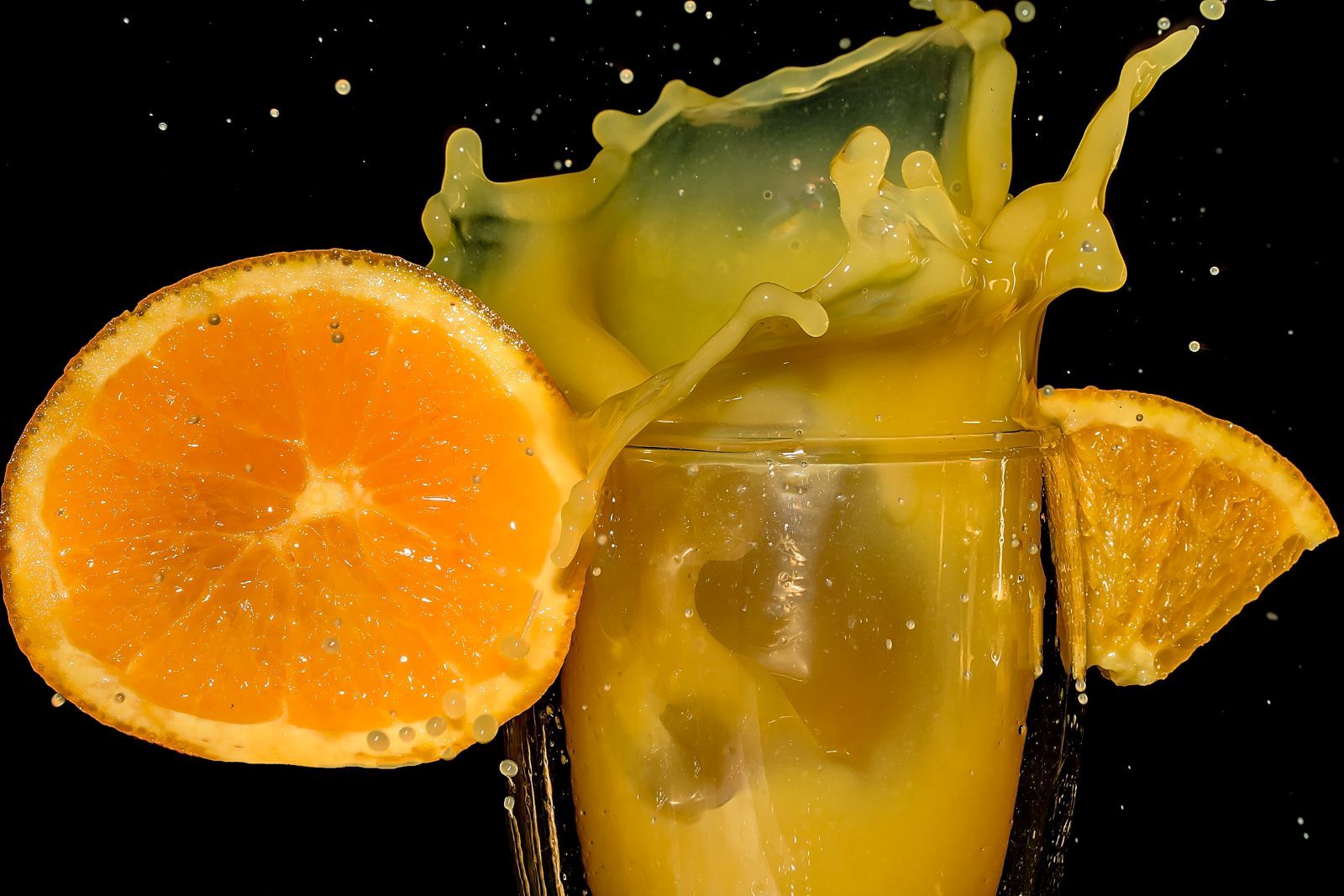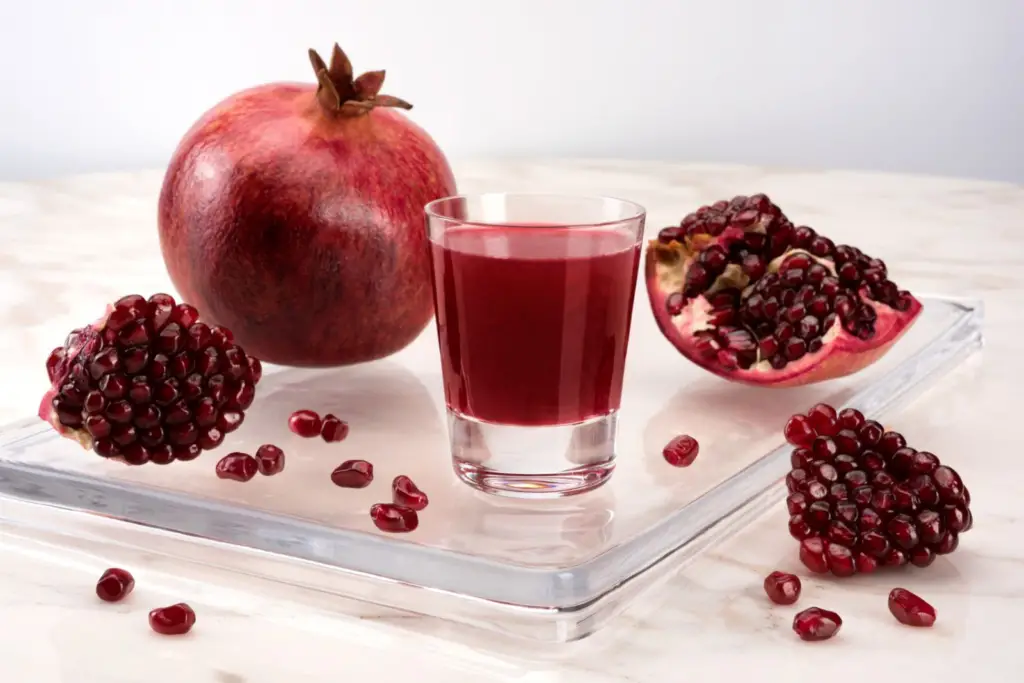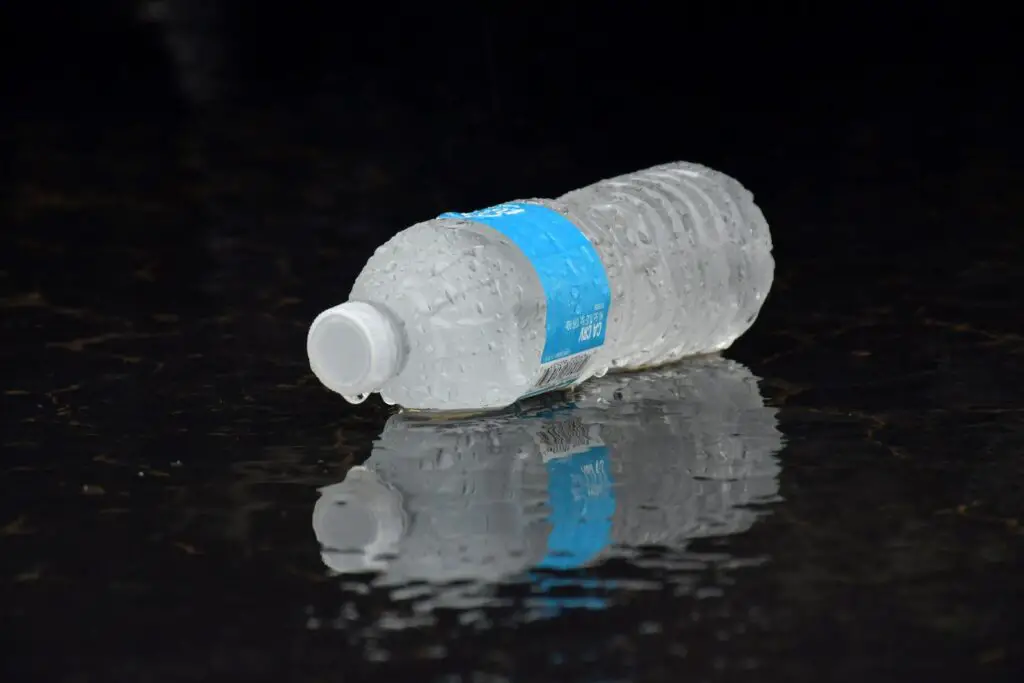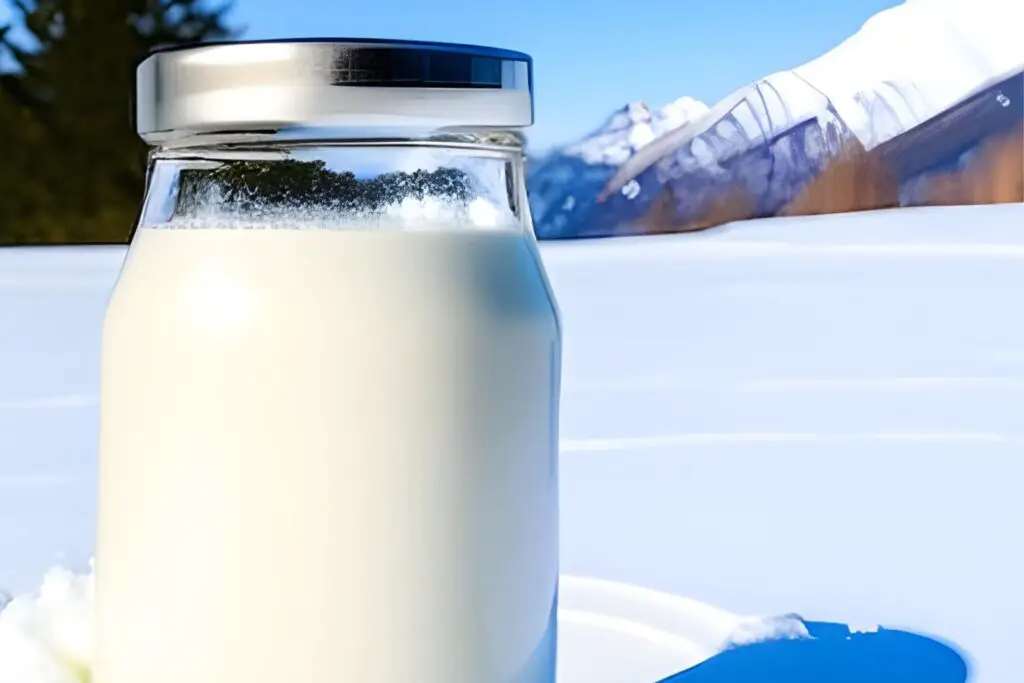
Orange juice is a popular and refreshing beverage enjoyed by people of all ages around the world. Packed with essential vitamins and a vibrant citrus flavor, it is a go-to choice for breakfast or a refreshing pick-me-up throughout the day. However, there are times when you may find yourself with an excess amount of orange juice that you don’t want to go to waste. Freezing orange juice is a convenient solution that allows you to preserve its freshness and enjoy it later. Whether you have freshly squeezed juice or store-bought cartons, freezing it can extend its shelf life and provide a readily available source of vitamin C whenever you need it. In this guide, we will explore the best methods for freezing orange juice while ensuring its quality and taste remain intact.
Here are the simple steps to freeze orange juice:
Step 1: Select the right containers
Choosing the right containers is essential when freezing orange juice. Freezer-safe containers or resealable plastic bags specifically designed for freezing liquids are ideal options. Here’s why:
- Freezer-safe containers: Opt for containers that are specifically labeled as “freezer-safe” or “suitable for freezing.” These containers are made of materials that can withstand low temperatures without cracking or becoming brittle. They are designed to prevent freezer burn and maintain the quality of the orange juice.
- Resealable plastic bags: If you prefer a space-saving option, resealable plastic bags designed for freezing liquids can be a convenient choice. Look for bags made with durable, thick plastic that is resistant to punctures and tears. These bags are designed to be airtight and help preserve the freshness of the orange juice.
- Clean and good condition: Before using any containers, ensure they are thoroughly cleaned and sanitized. This step is crucial to prevent any bacteria or contaminants from entering the orange juice during the freezing process. Wash the containers with warm, soapy water, rinse them well, and allow them to air dry completely.
Can I freeze orange juice in its original carton or bottle?
It is not recommended to freeze orange juice in its original carton or bottle. The carton or bottle may not be designed to withstand the expansion that occurs when liquids freeze, which can cause the packaging to burst or leak. Additionally, freezing in the original packaging may lead to a loss of quality and potential contamination. It is best to transfer the orange juice to freezer-safe containers or resealable bags before freezing.
Can I freeze orange juice in ice cube trays?
Yes, you can freeze orange juice in ice cube trays. Freezing orange juice in ice cube trays allows for convenient portioning and easy usage in various applications. Once the orange juice cubes are frozen, you can transfer them to a freezer-safe bag or container for longer-term storage, ensuring they stay fresh and ready to use whenever needed.
Step 2: Leave enough headspace
When freezing orange juice, it is crucial to leave enough headspace in the containers. Here’s why:
- Expansion during freezing: Liquids, including orange juice, expand as they freeze. When water freezes, it undergoes a phase change and expands in volume. If the container is filled to the brim with orange juice, there won’t be enough space for expansion. This can cause the container to crack, leak, or even burst, leading to a messy freezer and potential loss of the orange juice.
- Prevention of container damage: Leaving sufficient headspace allows the expanding orange juice to push against the air pocket rather than exert pressure on the container walls. This prevents the container from becoming deformed, cracked, or damaged during the freezing process.
- Preservation of quality: By providing enough headspace, you help maintain the texture and flavor of the orange juice. When there is room for expansion, the juice freezes evenly and retains its original taste and consistency. Insufficient headspace may result in a mushy texture or altered flavor due to uneven freezing.
To ensure proper headspace, pour the orange juice into the chosen containers, leaving approximately an inch of space at the top. This extra room allows the liquid to expand as it freezes without causing any damage to the container.
Step 3: Seal the containers tightly
After pouring the orange juice into the chosen containers, it is essential to seal them tightly. Here’s why:
- Preservation of flavor and quality: A tight seal prevents air and moisture from entering the container. Air exposure can lead to oxidation, which can cause the orange juice to lose its flavor and nutritional value over time. Additionally, moisture can result in freezer burn, causing the juice to develop a dry, off-flavor and texture. By sealing the containers tightly, you create a barrier that helps maintain the freshness and quality of the orange juice.
- Prevention of contamination: A secure seal also prevents any potential contamination from entering the container. It keeps out unwanted odors, flavors, or bacteria that could affect the taste and safety of the orange juice. A proper seal ensures that the frozen orange juice remains clean and free from any foreign substances.
- Avoiding spills and leaks: Tight sealing reduces the risk of spills and leaks in the freezer. This is especially important if you have multiple containers stored together or if you plan to stack them. A secure seal provides peace of mind, knowing that your freezer will remain clean and organized.
To seal the containers, ensure that the lids are securely fastened or that the resealable plastic bags are tightly closed. Check for any signs of gaps or openings and make sure they are properly sealed to create an airtight environment.
Step 4: Label the containers
Once you have sealed the containers with the orange juice, it’s important to label them for easy identification. Here’s why:
- Identification and organization: Labeling the containers with the contents, in this case, “Orange Juice,” allows you to quickly identify them in the freezer. When you store multiple items, clear labeling helps you find what you’re looking for without opening each container. It promotes organization and saves you time and effort.
- Date tracking: Writing the date on the containers enables you to keep track of when the orange juice was frozen. This information is crucial for ensuring that you consume the oldest frozen juice first. By practicing proper rotation, you can prevent the orange juice from exceeding its recommended storage time and maintain its quality.
- Differentiating from other liquids: If you plan to freeze other liquids alongside the orange juice, labeling helps distinguish them. This is especially useful if you have various types of frozen beverages or if some containers contain different flavors or mixtures. Clear labeling prevents confusion and ensures that you reach for the desired container when retrieving it from the freezer.
You can write directly on the containers or use adhesive labels if preferred. Place the labels in a visible area, such as the lid or front of the container, for easy reading.
Step 5: Place the containers in the freezer
After properly sealing the containers with orange juice, it’s time to store them in the freezer. Here’s why the placement and spacing are important:
- Preventing spills and leaks: Placing the sealed containers in an upright position helps prevent any spills or leaks. When liquids freeze, they expand, and if the containers are not positioned upright, there is a higher chance of leakage. Storing the containers in an upright position ensures that the lids remain tightly sealed, minimizing the risk of any orange juice leaking into the freezer.
- Proper air circulation: Adequate air circulation is crucial for maintaining a consistent temperature throughout the freezer. Leaving enough space around each container allows cold air to circulate freely, ensuring even freezing and proper preservation of the orange juice. It also helps prevent the formation of ice crystals and freezer burn, which can negatively impact the quality and texture of the juice.
- Accessibility and organization: Arranging the containers in an organized manner makes it easier to locate and retrieve the frozen orange juice when needed. You can group similar items together or organize them based on the date of freezing. This arrangement enables you to maintain a clear overview of your freezer inventory and ensures that the oldest juice is easily accessible for consumption.
Step 6: Thawing and consuming the frozen orange juice
When the time comes to enjoy frozen orange juice, it’s important to follow the proper thawing process to maintain its flavor and quality. Here’s why and how to thaw the frozen orange juice:
- Gentle thawing preserves quality: Thawing the orange juice slowly and gently helps preserve its taste and texture. Thawing at room temperature or using methods like hot water or the microwave can lead to uneven thawing and may affect the quality of the juice. Thawing in the refrigerator allows for a gradual thaw, minimizing the risk of texture changes or flavor loss.
- Refrigerator thawing: Remove the desired container of frozen orange juice from the freezer and place it in the refrigerator. Thawing in the refrigerator is a safe method as it maintains a consistent and controlled temperature. Depending on the size of the container, it may take several hours or even overnight to fully thaw.
- Gentle stirring before serving: Once the orange juice is thawed, give it a gentle stir before serving. This step helps redistribute any settled pulp or sediment that may have accumulated during the freezing process. Stirring ensures a uniform consistency and enhances the overall enjoyment of the orange juice.
Remember to plan ahead and allow sufficient time for thawing, especially if you anticipate consuming the juice at a specific time. Once thawed, give it a gentle stir to ensure a smooth and consistent texture. Now, you can enjoy the refreshing taste of your frozen orange juice.
Other related questions
How long does orange juice stay good in the freezer?
Orange juice can stay good in the freezer for approximately 8 to 12 months. However, for the best quality and flavor, it is recommended to consume it within the first 3 to 6 months. Over time, the taste and texture of the orange juice may gradually degrade. Proper packaging, including airtight containers and protection against freezer burn, can help maintain its quality for a longer period. It’s important to label the containers with the date of freezing to keep track of their storage time and prioritize consuming the oldest ones first.
Can I refreeze orange juice that has been thawed?
It is generally not recommended to refreeze orange juice that has been thawed. When orange juice is frozen and thawed, its texture and quality may be compromised. Additionally, each freeze-thaw cycle increases the risk of bacterial growth and potential contamination. It is best to thaw only the amount of orange juice you intend to consume and discard any leftovers to maintain the best flavor and safety. If you frequently find yourself with excess thawed orange juice, consider portioning it before freezing to minimize waste.
How do I know if my frozen orange juice has gone bad?
To determine if your frozen orange juice has gone bad, there are a few signs to look out for. Firstly, check for any noticeable changes in color. If the juice has significantly darkened or developed an unusual hue, it may indicate spoilage. Secondly, examine the texture and consistency of the juice. If it appears clumpy, slimy or has separated into layers, it is best to discard it. Lastly, trust your sense of smell. If the orange juice emits an off or sour odor, it is a strong indication of spoilage.
Can I use frozen orange juice with the fresh ones?
Yes, you can use frozen orange juice alongside fresh ones, depending on your preferences and intended use. Frozen orange juice can be a convenient option for adding a burst of citrus flavor to recipes, smoothies, or beverages when fresh oranges are not readily available. However, it’s important to note that frozen orange juice may have a slightly different texture and taste compared to freshly squeezed juice. Experiment with blending frozen and fresh orange juice in various ratios to achieve the desired flavor and consistency for your specific application. Keep in mind that frozen orange juice may dilute the fresh juice if mixed together in equal proportions.
Can I freeze orange juice that has been sweetened or mixed with other ingredients?
Yes, you can freeze orange juice that has been sweetened or mixed with other ingredients, but it’s important to consider a few factors. Sweeteners and other ingredients may alter the texture and taste of the orange juice during freezing and thawing. Additionally, some ingredients may not freeze well or could separate from the juice, affecting its overall quality. It is recommended to freeze plain orange juice without any additives for the best results, but if you choose to freeze a sweetened or mixed version, be aware that the final outcome may differ from the original.
Can I freeze orange juice concentrate?
Yes, you can freeze orange juice concentrate. Freezing orange juice concentrate helps extend its shelf life and preserve its flavor. It is best to transfer the concentrate into a freezer-safe container or resealable bag, ensuring it is tightly sealed to prevent air exposure. When you’re ready to use the frozen concentrate, simply thaw it in the refrigerator before reconstituting it with the appropriate amount of water according to the package instructions.








